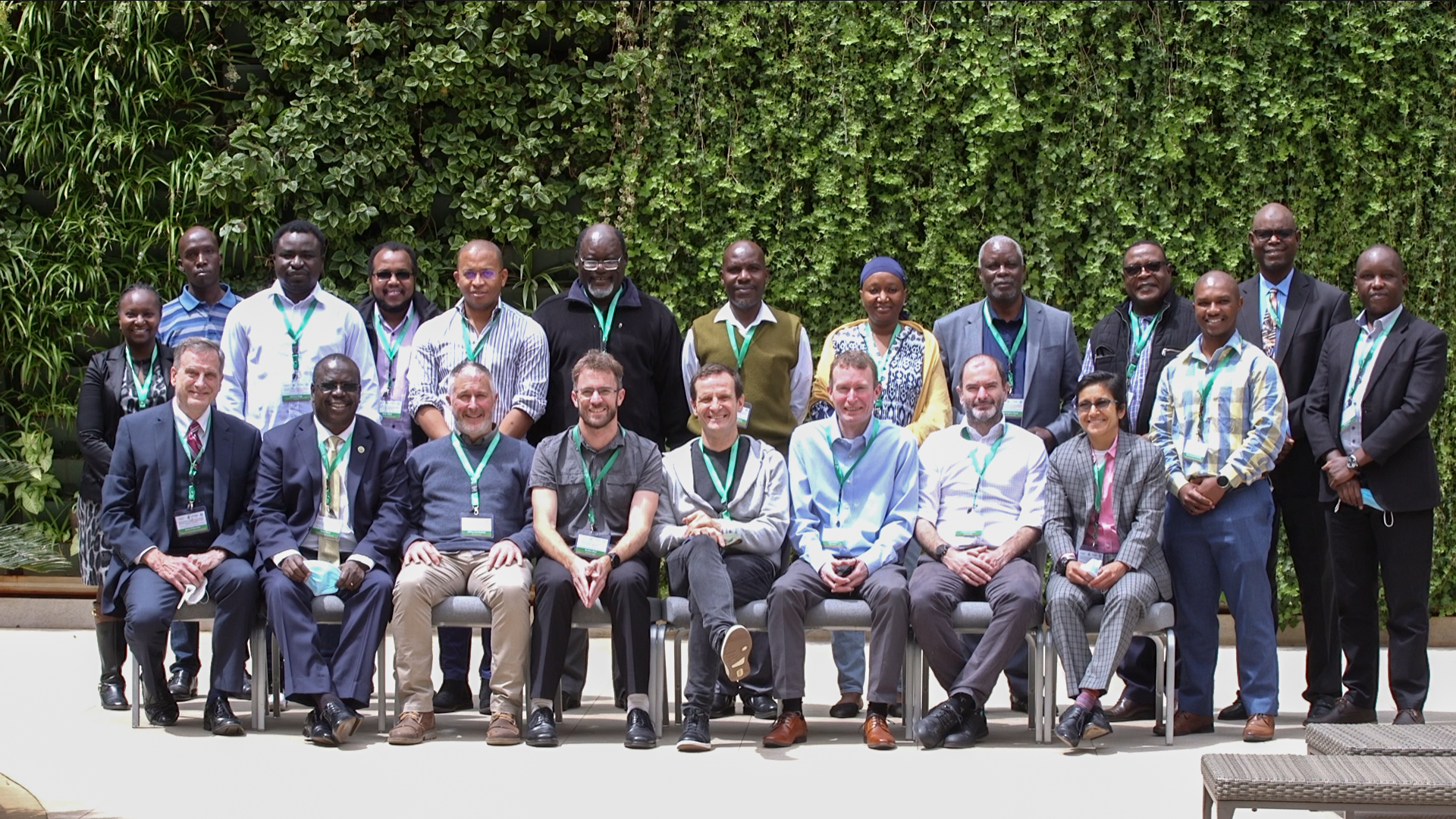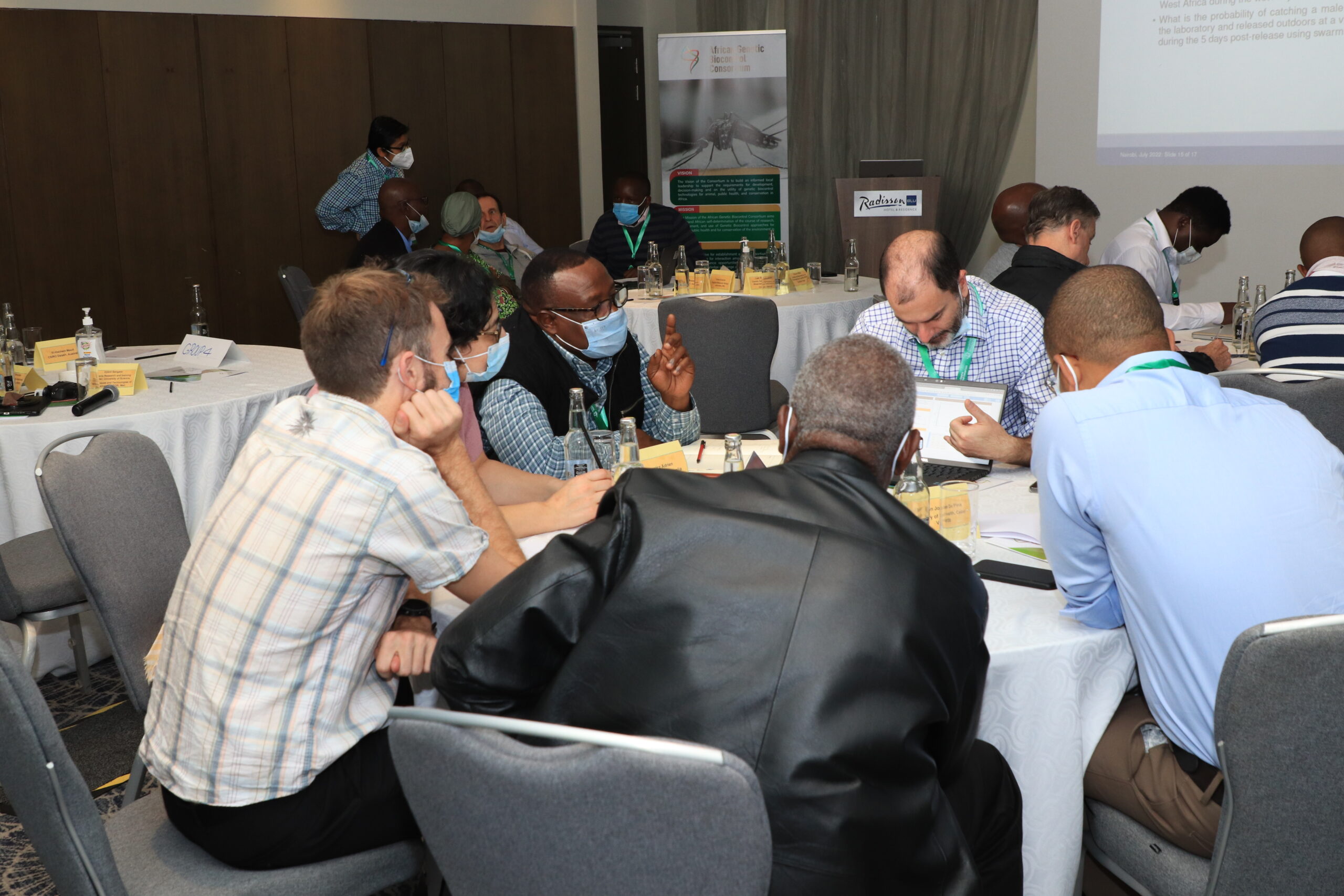AFRICAN GENETIC BIOCONTROL CONSORTIUM HOLDS A TRAINING WORKSHOP ON NEW TOOLS FOR RISK ASSESSMENT AND THEIR APPLICATION IN DECISION-MAKING PROCESS FOR TESTING AND DEPLOYMENT OF NEW AND EMERGING GENETIC BIOCONTROL TECHNOLOGIES
Posted on July 29, 2022

Group photo of the 3-day training workshop held in Nairobi, Kenya
The African Genetic Biocontrol Consortium continues to provide a platform for interaction among African experts and institutions to enhance opportunities for technical capacity strengthening, knowledge exchange and deliberation about the challenges and opportunities of genetic biocontrol technologies for the public good, which will strengthen African influence on their development and provide critical input for decision-making by product developers, policy makers, and other stakeholders.
During a training workshop held from 16th to 18th July in Nairobi, Kenya, participants who were a select group of African biosafety regulators were taken through an introduction to risk assessment and associated methods (qualitative and quantitative), in the context of genetic bio-control. The workshop comprised of a mixture of presentations provided by members of the Commonwealth Scientific and Industrial Research Organization (CSIRO) Data61 Environmental and Ecological Risk Assessment (DEERA) team. Additionally, target participants were engaged in hands-on exercises to provide practical experience and further insight into the issues and methods highlighted in the presentations.
Risk assessment is the process of collecting and critically reviewing data for the identification and quantification of risks resulting from any activity that may pose threats to the environment, animals, and people. Risk assessment is an important aspect of genetic biocontrol research and it is often carried out at key stages of the research. It is imperative to engage with stakeholders and communities to help in defining values and preferences of genetic biocontrol technologies. For instance, before any environmental release of an engineered gene drive mosquito could be considered by regulators, decision-makers and stakeholders, environmental risk assessment (ERA), whether probabilistic, qualitative, or a combination thereof, must be conducted to evaluate potential risks to human health, animal health and the environment. Additionally, a requirement for an effective environmental risk assessment of genetically modified organisms is to define intended and unintended effects of the intervention on target organisms and non-target organisms.
Selected participants in this workshop were taken through comprehensive topics on risk assessment such as Introduction to risk, risk assessment frameworks and methods; Qualitative risk assessment; Introduction to probabilistic risk assessment; Simple statistical models and elicitation; Process-based models in risk assessment; and Scientific quality criteria – what to look for in a risk assessment. In addition to the presentations, participants were given an opportunity to engage in hands-on group activities in the three-day workshop including Exploring linguistic uncertainty; Case study in problem formulation and conceptual models; Subjective probability defining discrete and continuous cases, conditional probability tables, simple Bayes net; Case study on formal elicitation using Indirect; and Review risk assessment for release of OX513A in Grand Cayman.

Facilitators taking participants through engaging group activities during the workshop
On the final day of the workshop, participants were given an opportunity to give presentations on their country experience on requirements, regulations, risk assessment frameworks, and decision-making process for genetic biocontrol products. The essence of this exercise was to share country experiences in Africa to identify gaps and provide recommendations in regard to the development of genetic biocontrol technology. Participants gave a positive review of the three-day workshop and resolved to act as focal points in their respective countries in the assessment and identification of new tools that may be adopted in strengthening the decision-making process for genetic biocontrol products in Africa.
Facilitators and participants gave positive reviews of the workshop, especially from a networking perspective. A key resolution of this workshop was an agreement to form committees. For instance, a proposition was made to form a Risk Assessment Committee, which will spearhead discussions and development of best practice guidance and consensus documents. It was also resolved that the Consortium will expedite the activities of a Youth Forum, which will give youth a voice in the planning of activities and programs on genetic biocontrol technologies for their communities and to provide information to adults making decisions that affect their lives.
